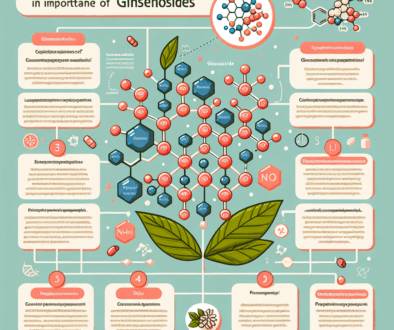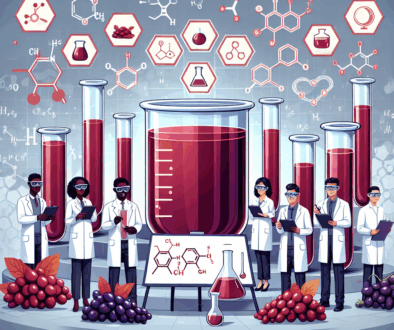Glutathione and Cysteine Disulfide-Linked: What to Know
-
Table of Contents
- Glutathione and Cysteine Disulfide-Linked: Essential Knowledge for Health and Wellness
- Understanding Glutathione: The Master Antioxidant
- The Role of Cysteine and Disulfide Bonds
- Glutathione Synthesis and Cysteine Availability
- Glutathione Deficiency and Disease
- Boosting Glutathione Levels
- Conclusion: The Significance of Glutathione and Cysteine Disulfide Bonds
- Discover ETprotein’s High-Quality Protein Products
Glutathione and Cysteine Disulfide-Linked: Essential Knowledge for Health and Wellness

Glutathione, often referred to as the “master antioxidant,” is a critical molecule in maintaining oxidative balance and overall health. Its relationship with cysteine, particularly in the form of cysteine disulfide bonds, is a cornerstone of its biological function. Understanding the interplay between glutathione and cysteine disulfide-linked structures is essential for appreciating how our bodies combat oxidative stress and maintain cellular health. This article delves into the science behind these molecules, their importance in human physiology, and the implications for health and disease.
Understanding Glutathione: The Master Antioxidant
Glutathione (GSH) is a tripeptide composed of three amino acids: glutamine, cysteine, and glycine. It is found in virtually every cell of the body and plays a pivotal role in protecting cells from oxidative damage caused by free radicals and peroxides. Glutathione exists in two forms: the reduced form (GSH) and the oxidized form (GSSG), where two glutathione molecules are linked together by a disulfide bond.
- Antioxidant Properties: GSH is a potent antioxidant that neutralizes harmful free radicals and reactive oxygen species (ROS), thus preventing cellular damage.
- Detoxification: It is involved in the detoxification process, helping to eliminate toxins and carcinogens from the body.
- Immune Function: Glutathione enhances the immune system by influencing lymphocyte function and promoting the development of T-cells.
- Protein and DNA Synthesis: It plays a role in the synthesis and repair of proteins and DNA.
- Enzyme Function: GSH is a cofactor for several antioxidant enzymes, including glutathione peroxidase and glutathione S-transferase.
The Role of Cysteine and Disulfide Bonds
Cysteine is a sulfur-containing amino acid that is crucial for the synthesis of glutathione. Its thiol (sulfhydryl) group is highly reactive and can form disulfide bonds with other cysteine residues, which is fundamental in protein structure and function.
- Disulfide Bonds: These covalent bonds are formed between the sulfur atoms of two cysteine molecules, stabilizing the three-dimensional structure of proteins.
- Protein Folding: Disulfide bonds are essential for the proper folding and stability of many proteins, including antibodies and enzymes.
- Cell Signaling: Cysteine residues can undergo oxidation and reduction reactions, playing a role in cell signaling pathways and redox homeostasis.
Glutathione Synthesis and Cysteine Availability
The synthesis of glutathione is a two-step process that is highly dependent on the availability of cysteine. The rate-limiting step of glutathione synthesis is catalyzed by the enzyme glutamate-cysteine ligase (GCL), which combines glutamate and cysteine. The second step involves the addition of glycine by the enzyme glutathione synthetase.
- Dietary Sources: Cysteine can be obtained from dietary sources, such as poultry, eggs, dairy, red peppers, garlic, onions, broccoli, Brussels sprouts, oats, and wheat germ.
- N-Acetylcysteine (NAC): NAC is a supplement form of cysteine that has been shown to boost glutathione levels in the body and is used in medical settings to treat acetaminophen overdose and to loosen mucus in individuals with chronic respiratory conditions.
Glutathione Deficiency and Disease
Glutathione deficiency can lead to increased oxidative stress and has been linked to a number of diseases and conditions, including:
- Neurodegenerative Diseases: Conditions such as Alzheimer’s, Parkinson’s, and multiple sclerosis have been associated with reduced glutathione levels.
- Cardiovascular Diseases: Oxidative stress contributes to atherosclerosis and other heart diseases, where glutathione plays a protective role.
- Chronic Respiratory Diseases: Glutathione levels are often depleted in diseases like chronic obstructive pulmonary disease (COPD) and asthma.
- Cancer: Some cancer cells have high levels of glutathione, which may contribute to resistance to chemotherapy drugs.
- HIV/AIDS: Glutathione deficiency is common in patients with HIV/AIDS, leading to increased oxidative stress and immune dysfunction.
Boosting Glutathione Levels
There are several ways to enhance glutathione levels in the body:
- Diet: Consuming foods rich in sulfur-containing amino acids, vitamins C and E, selenium, and alpha-lipoic acid can support glutathione synthesis.
- Exercise: Regular physical activity has been shown to increase glutathione levels and improve antioxidant capacity.
- Supplements: Supplements like NAC, whey protein, and milk thistle may help boost glutathione levels.
Conclusion: The Significance of Glutathione and Cysteine Disulfide Bonds
In conclusion, glutathione and cysteine disulfide bonds play a vital role in maintaining cellular health and protecting against oxidative stress. Adequate levels of these molecules are essential for detoxification, immune function, and the prevention of various diseases. By understanding the importance of these compounds and how to support their levels in the body, individuals can take proactive steps towards enhancing their health and well-being.
Discover ETprotein’s High-Quality Protein Products
If you’re looking to support your glutathione levels through dietary supplements, ETprotein offers a range of high-quality protein products that can help. Their selection includes organic rice protein, pea protein, and other plant-based proteins that are rich in cysteine and other amino acids necessary for glutathione synthesis. With non-GMO, allergen-free attributes, and a neutral taste, ETprotein’s products are an excellent addition to any health-conscious individual’s regimen.
About ETprotein:
ETprotein, a reputable protein and L-(+)-Ergothioneine (EGT) Chinese factory manufacturer and supplier, is renowned for producing, stocking, exporting, and delivering the highest quality organic bulk vegan proteins and L-(+)-Ergothioneine. They include Organic rice protein, clear rice protein, pea protein, clear pea protein, watermelon seed protein, pumpkin seed protein, sunflower seed protein, mung bean protein, peanut protein, and L-(+)-Ergothioneine EGT Pharmaceutical grade, L-(+)-Ergothioneine EGT food grade, L-(+)-Ergothioneine EGT cosmetic grade, L-(+)-Ergothioneine EGT reference grade and L-(+)-Ergothioneine EGT standard. Their offerings, characterized by a neutral taste, non-GMO, allergen-free attributes, with L-(+)-Ergothioneine purity over 98%, 99%, cater to a diverse range of industries. They serve nutraceutical, pharmaceutical, cosmeceutical, veterinary, as well as food and beverage finished product distributors, traders, and manufacturers across Europe, USA, Canada, Australia, Thailand, Japan, Korea, Brazil, and Chile, among others.
ETprotein specialization includes exporting and delivering tailor-made protein powder and finished nutritional supplements. Their extensive product range covers sectors like Food and Beverage, Sports Nutrition, Weight Management, Dietary Supplements, Health and Wellness Products, and Infant Formula, ensuring comprehensive solutions to meet all your protein needs.
As a trusted company by leading global food and beverage brands and Fortune 500 companies, ETprotein reinforces China’s reputation in the global arena. For more information or to sample their products, please contact them and email sales(at)ETprotein.com today.












